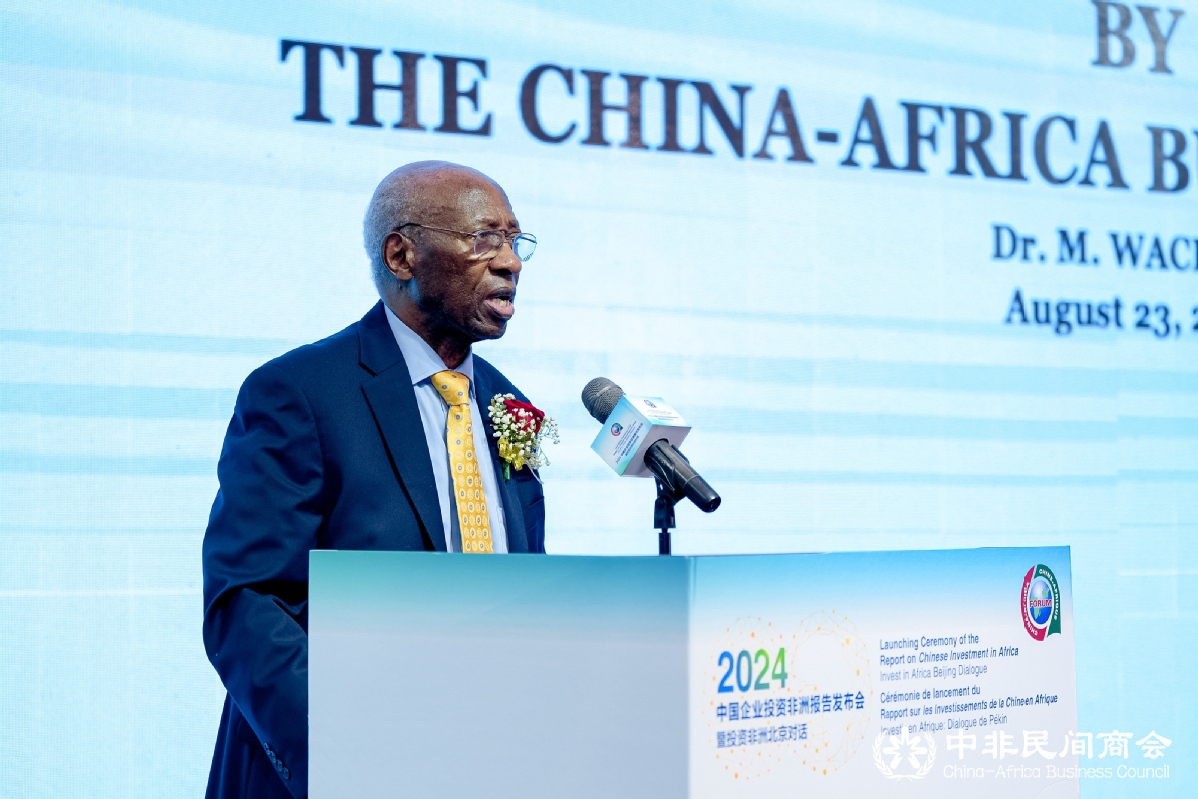
"Looking back at the Belt and Road Initiative over the years, the first thing that strikes you is the projects, especially the infrastructure projects," former World Bank economist Mwangi Wachira said in an exclusive interview with China Daily.
"In many cases, they have become symbols of development in most of the African countries."
Wachira emphasized that it is hard to understand what Africa has achieved over the past 20 years without talking about the BRI.
READ MORE: China, Africa enhancing partnership
"The initiative has gone to the heart of development issues in most countries," he said, adding that BRI projects have not only paved the way for Africa's economic growth but have also become significant markers of China-Africa cooperation.
According to the Report on 2024 Chinese Investment in Africa released by the China-Africa Business Council on Aug 23, 52 African countries had signed memorandums of understanding with China under the BRI framework by the end of last year. Trade between China and Africa reached $282.1 billion in 2023.
One of the authors of the report, Wachira said China has a stellar record of supporting the development of an integrated African market with infrastructure projects such as Algeria's El Hamdania Central Port, Kenya's Standard Gauge Railway, Ethiopia's Eastern Industrial Zone and the African Union headquarters in Addis Ababa, the Ethiopian capital.
Wachira, who served as an adviser to the Kenyan president and was involved in the final evaluation of the Mombasa-Nairobi Railway, said that the old railway had long been a bottleneck for regional cargo transport. The situation has changed dramatically thanks to the new railway.
"Today, goods can land in Mombasa and reach Naivasha in four days and Kampala in Uganda in six days, a significant reduction from the previous two-month journey," Wachira said.
"The saving of time is the essence of development, and the railway has become a major driver of economic growth in Kenya and East Africa, paving the way for regional economic integration."
Addressing claims by the United States and some of its allies that such BRI projects are debt traps, Wachira stressed that "most of Africa's debt is not owed to China but to Western institutions".
"It's the West which has trapped the Africans in debt," he said.
Based on the International Debt Report 2023 released by the World Bank, commercial bonds and multilateral debt accounted for 66 percent of Africa's total external debt in 2022, while China-Africa bilateral debt made up only 11 percent.
Compared to Western aid, Wachira said that China's support for African development is more foundational, addressing the root causes of the continent's issues.
"The need for roads, ports and railroads has existed for many years," he said. "Yet, it took China coming to Africa to start working on some of these projects."
ALSO READ: China to better align BRI with African goals
Taking communication and telecommunications infrastructure as an example, he noted that China has been working in that sector in Africa since the 1990s and has built 70 percent of the continent's telecommunications infrastructure.
He said that if such projects had been funded or implemented by a Western country, they would have come with a long list of conditions or requirements, complicating Africa's development and effectively amounting to a form of recolonization.
"The BRI has revitalized African development through iconic projects and small enterprises," Wachira said.
"As long as this cooperation continues, it will bring mutual benefits, shared prosperity and a bright future for Africa-China relations."
Xie Yuqi contributed to this story.


